
Serenity at Lake Bunyonyi: Uganda's Gem
Lake Bunyonyi, nestled in the heart of southwestern Uganda, is renowned for its breathtaking beauty and tranquil ambiance. Often referred to as the 'Place of Many Little Birds,' this lake is the second deepest in Africa, reaching depths of up to 900 meters. Its calm waters are dotted with 29 picturesque islands, each offering its own unique charm and stories. Visitors to Lake Bunyonyi can revel in a range of activities. From canoeing and swimming in the bilharzia-free waters to exploring the islands and hiking the surrounding hills, there is an adventure for everyone. Birdwatchers will be delighted by the over 200 bird species that inhabit the area, making it a true paradise for ornithologists. The lake's surroundings are equally captivating. Terraced hills and lush greenery provide a stunning backdrop, while local communities offer a glimpse into the rich culture and traditions of the Bakiga and Batwa people. Accommodations range from luxury lodges to budget-friendly campsites, ensuring that every traveler can find a comfortable place to stay and enjoy the serene beauty of Lake Bunyonyi.
Local tips in Lake Bunyonyi
- Bring binoculars for birdwatching; the diversity of species is remarkable.
- Pack a swimsuit; the lake is free from bilharzia and safe for swimming.
- Hire a local guide for a canoe tour to learn about the history and legends of the islands.
- Visit during the dry season (June to August and December to February) for the best weather.
- Try local dishes like 'Ugali' and 'Rolex' at nearby restaurants to experience Ugandan cuisine.
Serenity at Lake Bunyonyi: Uganda's Gem
Lake Bunyonyi, nestled in the heart of southwestern Uganda, is renowned for its breathtaking beauty and tranquil ambiance. Often referred to as the 'Place of Many Little Birds,' this lake is the second deepest in Africa, reaching depths of up to 900 meters. Its calm waters are dotted with 29 picturesque islands, each offering its own unique charm and stories. Visitors to Lake Bunyonyi can revel in a range of activities. From canoeing and swimming in the bilharzia-free waters to exploring the islands and hiking the surrounding hills, there is an adventure for everyone. Birdwatchers will be delighted by the over 200 bird species that inhabit the area, making it a true paradise for ornithologists. The lake's surroundings are equally captivating. Terraced hills and lush greenery provide a stunning backdrop, while local communities offer a glimpse into the rich culture and traditions of the Bakiga and Batwa people. Accommodations range from luxury lodges to budget-friendly campsites, ensuring that every traveler can find a comfortable place to stay and enjoy the serene beauty of Lake Bunyonyi.
When is the best time to go to Lake Bunyonyi?
Iconic landmarks you can’t miss
Birdnest @ Bunyonyi Resort
Experience the beauty of Lake Bunyonyi at Birdnest Resort, where comfort meets adventure amidst stunning landscapes in Uganda.

Arcadia Lodges Lake Bunyonyi
Discover the tranquil beauty of Lake Bunyonyi at Arcadia Lodges, Uganda's hidden paradise for nature lovers and adventure seekers alike.

Bunyonyi Overland Resort
Discover tranquility and adventure at Bunyonyi Overland Resort, a beautiful lakeside hotel in Uganda, perfect for relaxation and exploration.

Bunyonyi Safaris Resort
Experience the beauty of Uganda at Bunyonyi Safaris Resort, a serene lakeside retreat offering adventure, relaxation, and cultural experiences.
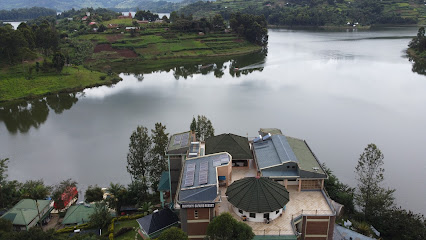
Lake Bunyonyi Rock Resort
Experience the beauty of Lake Bunyonyi at Rock Resort, where adventure meets tranquility in a stunning natural setting.
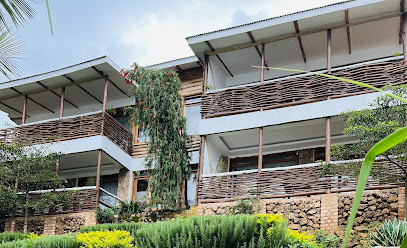
Lake Bunyonyi Eco Resort
Discover tranquility at Lake Bunyonyi Eco Resort, where stunning landscapes meet eco-friendly luxury and endless adventure awaits.
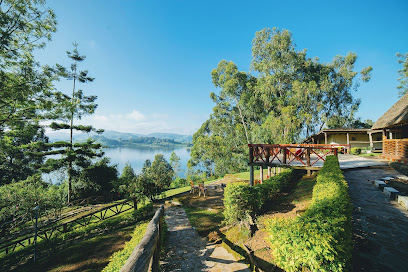
Hawk's Eye Lodge Bunyonyi
Discover tranquility and breathtaking views at Hawk's Eye Lodge Bunyonyi, where nature meets comfort on the shores of Lake Bunyonyi.
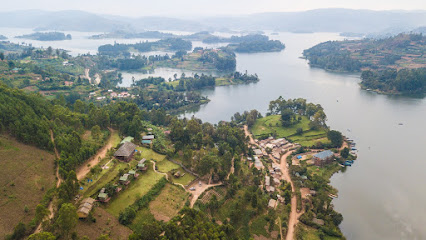
All Saints' Church-Kabale
Discover serenity and architectural beauty at All Saints' Church, a historic Anglican landmark in the heart of Kabale, Uganda.
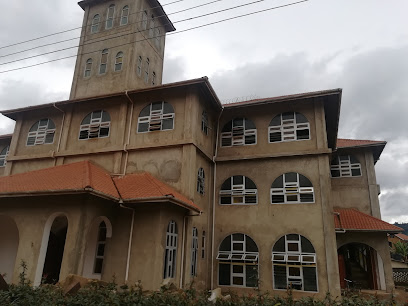
Crater Bay Cottages and Camp
Experience the serene beauty and adventure at Crater Bay Cottages and Camp, a perfect getaway on the shores of Lake Bunyonyi in Uganda.

Edirisa on Lake Bunyonyi
Discover the beauty of Lake Bunyonyi at Edirisa—your home away from home in Uganda, where adventure and culture meet.

Amasiko Homestay
Experience authentic Ugandan hospitality at Amasiko Homestay, your cozy retreat in the heart of Kabale's breathtaking landscapes.

The Kansiime Backpackers
Discover a unique blend of adventure and relaxation at The Kansiime Backpackers, your perfect lakeside retreat in Uganda.

Entusi Resort & Retreat Center
Discover tranquility and adventure at Entusi Resort & Retreat Center, a beautiful lakeside retreat in Kabale, Uganda, perfect for relaxation and exploration.
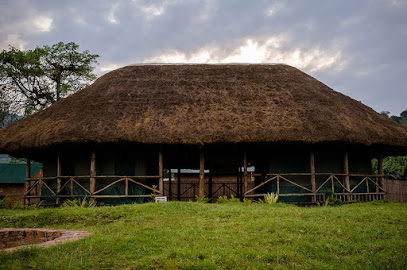
Itambira Island, Seeds of Hope
Discover the serene beauty of Itambira Island on Bunyonyi Lake, a perfect blend of relaxation and adventure in Uganda.
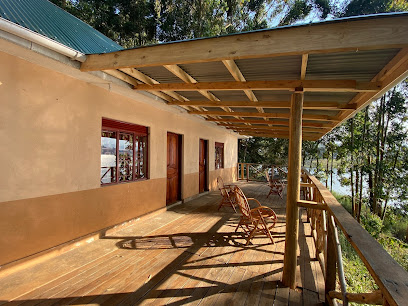
Keije Resort Bunyonyi | Comfort Resort in Lake Bunyonyi | Lake Bunyonyi Accommodation
Experience tranquil luxury at Keije Resort Bunyonyi, where serene lake views and comfortable accommodations await in Uganda's breathtaking landscape.
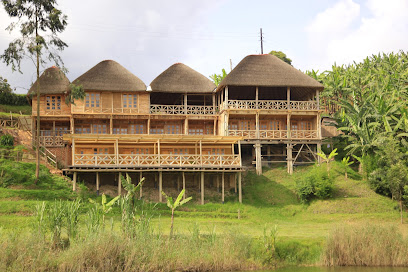
Unmissable attractions to see
All Saints' Church-Kabale
Discover the rich spiritual heritage and stunning architecture of All Saints' Church in Kabale, a must-visit tourist attraction in Uganda.
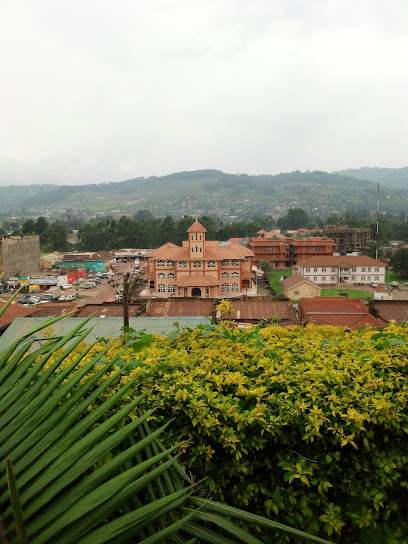
Supreme Adventure Park Bunyonyi
Experience the thrill of adventure sports at Supreme Adventure Park Bunyonyi, surrounded by the breathtaking beauty of Lake Bunyonyi in Uganda.
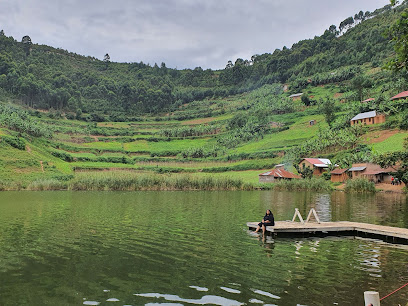
Ruhija Gorilla Trekking Camp - Trekking Gorillas
Experience the wonder of mountain gorillas at Ruhija Gorilla Trekking Camp, your gateway to unforgettable adventures in Uganda's lush wilderness.
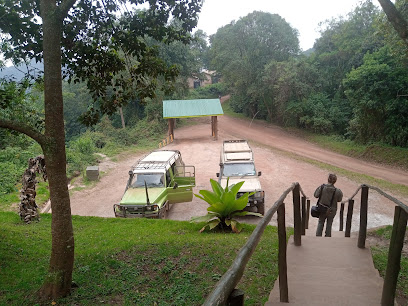
Safari 2 Gorilla Tours | Gorilla Trekking Uganda, Rwanda & Congo (DRC)
Discover the Magic of Gorilla Trekking in Uganda, Rwanda & Congo with Safari 2 Gorilla Tours - A Unique Adventure Awaits!
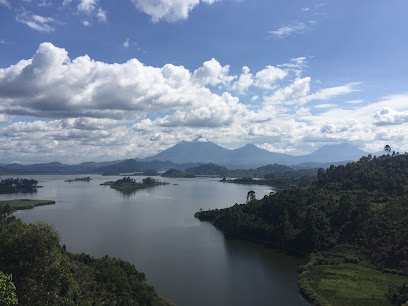
Home of Kigezi Museum
Explore the rich cultural heritage of Kigezi at the Home of Kigezi Museum, nestled in the breathtaking Greater Virunga Ranges, Uganda.
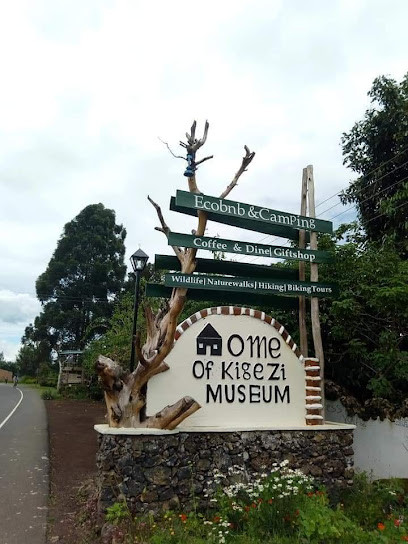
Nyamunyonyi Tourism Resort
Discover the tranquility of Nyamunyonyi Tourism Resort by Lake Bunyonyi, where nature meets comfort and adventure awaits.

Bwindi Reptile Farm
Explore the enchanting Bwindi Reptile Farm in Uganda, where education meets adventure amidst stunning natural beauty.
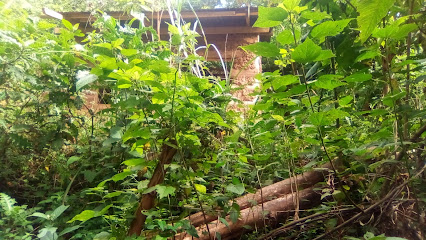
Rose Gardens of Shyaka
Explore the breathtaking Rose Gardens of Shyaka in Kabale, Uganda, where nature's beauty and serenity come together in a floral paradise.
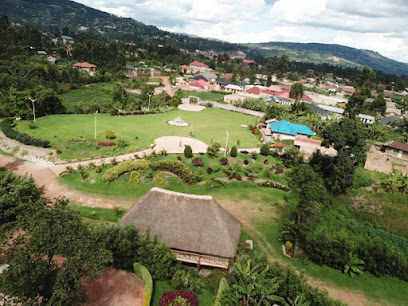
Byamukama Simon Residences
Experience authentic Ugandan hospitality at Byamukama Simon Residences in Bikongozo, a unique cultural gem for travelers.

Nkanka Spring
Explore the serene beauty of Nkanka Spring in Rwanzu, Uganda—a tranquil escape into nature's embrace perfect for relaxation and exploration.
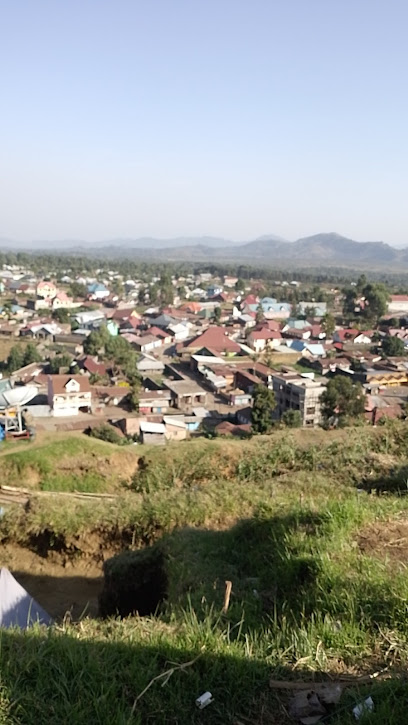
Gorilla Visit Uganda
Experience the thrill of gorilla trekking in the heart of Uganda's stunning landscapes, where wildlife conservation meets breathtaking adventure.

Danau Mutanda
Experience the breathtaking beauty and tranquility of Danau Mutanda, a hidden gem in Uganda's stunning landscape.

Tukacungurwa George
Discover the breathtaking trails and serene beauty of Tukacungurwa George, a premier hiking destination in Kabale, Uganda.

Danau Bunyonyi
Experience the serene beauty and rich culture of Danau Bunyonyi, Uganda's captivating lake known for its stunning landscapes and adventure opportunities.

Sabena
Discover the beauty and tranquility of Sabena Park in Kabale, a perfect escape for nature lovers and families alike.

Essential places to dine
Birdnest @ Bunyonyi Resort
Discover tranquility at Birdnest @ Bunyonyi Resort - where luxury meets nature on the stunning shores of Lake Bunyonyi.

Bunyonyi Overland Resort
Experience tranquility at Bunyonyi Overland Resort, your gateway to adventure and relaxation by the pristine shores of Lake Bunyonyi.

Bunyonyi Safaris Resort
Discover tranquility and adventure at Bunyonyi Safaris Resort - your gateway to Uganda's natural beauty and rich culture.
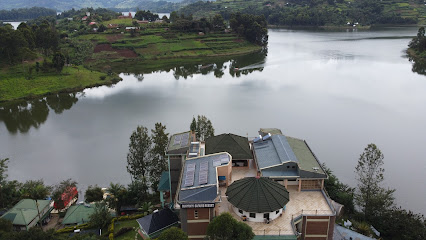
Lake Bunyonyi Rock Resort
Experience serenity at Lake Bunyonyi Rock Resort—your perfect lakeside getaway in Uganda with stunning views and endless adventures.
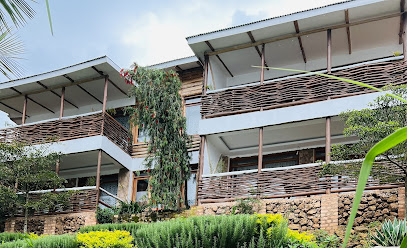
Lake Bunyonyi Eco Resort
Discover serenity at Lake Bunyonyi Eco Resort—your ultimate getaway surrounded by nature's wonders in Uganda.
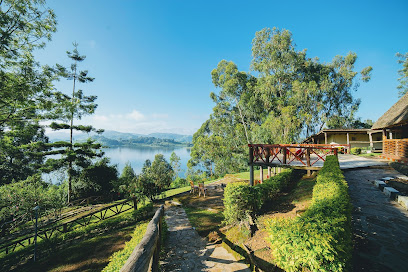
Hawk's Eye Lodge Bunyonyi
Experience tranquility at Hawk's Eye Lodge on Lake Bunyonyi – where nature meets comfort in Uganda’s breathtaking landscape.
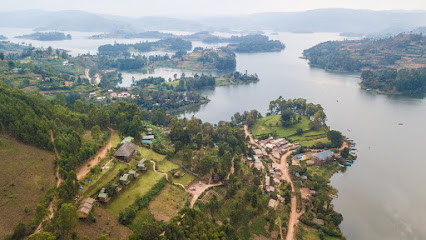
Numba Cafe & Boutique Hotel by Arcadia Lodges
Discover delightful dining and cozy accommodations at Numba Cafe & Boutique Hotel in the heart of Kabale, Uganda.
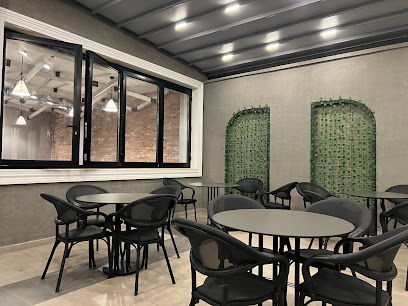
Edirisa on Lake Bunyonyi
Discover the charm of Edirisa on Lake Bunyonyi - where adventure meets tranquility amidst breathtaking natural beauty.

The Kansiime Backpackers
Discover adventure at The Kansiime Backpackers by Lake Bunyonyi—perfect for budget travelers seeking natural beauty and community.

Entusi Resort & Retreat Center
Experience tranquility at Entusi Resort & Retreat Center by Lake Bunyonyi—your serene escape into nature's embrace.
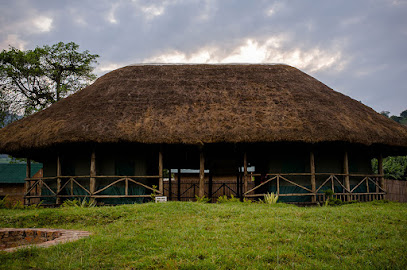
Itambira Island, Seeds of Hope
Explore the enchanting Itambira Island on Bunyonyi Lake - a serene retreat blending nature, culture, and delicious local cuisine.
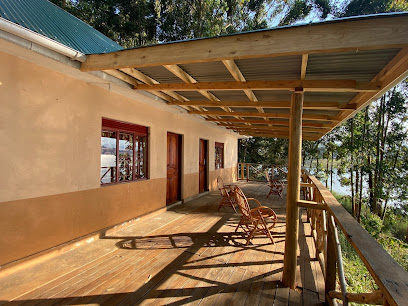
Moonlight restaurant Kabale
Experience authentic Ugandan flavors at Moonlight Restaurant in Kabale—where local dishes meet international culinary delights amidst stunning views.
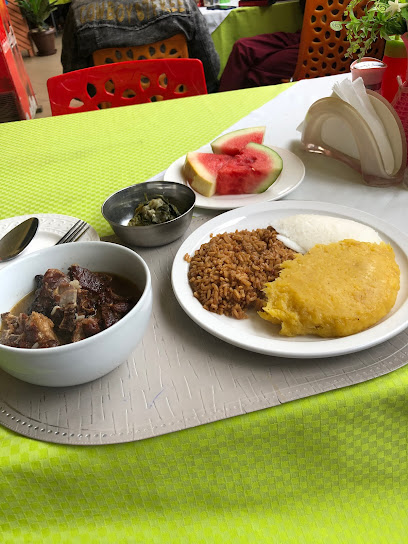
Kyamp's restaurant
Experience authentic Ugandan flavors at Kyamp's Restaurant in Kabale - where every meal tells a story.
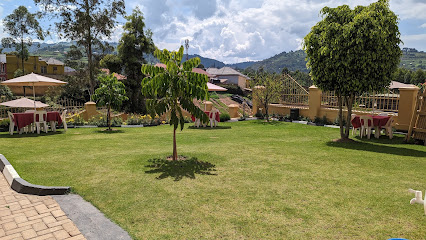
Miami Restaurant
Experience the vibrant tastes of Uganda at Miami Restaurant in Kabale - where local flavors meet international cuisine.
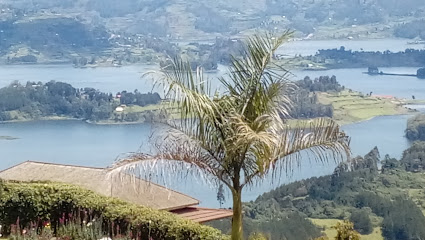
Heritage Camp Muko
Experience authentic Ugandan cuisine amidst stunning landscapes at Heritage Camp Muko - your perfect dining retreat near Bwindi Forest.
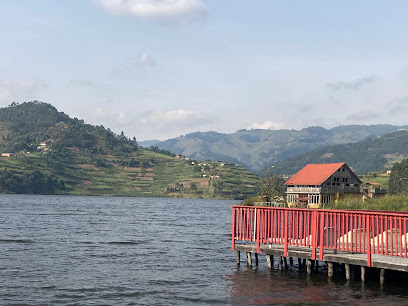
Markets, malls and hidden boutiques
Bunyonyi Safaris Resort
Discover tranquility and adventure at Bunyonyi Safaris Resort, a premier hotel on the shores of Lake Bunyonyi in Uganda's breathtaking landscape.
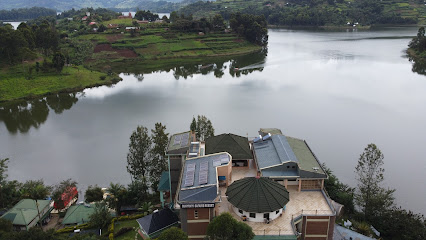
Paradise Eco-Hub
Experience the serenity of Lake Bunyonyi at Paradise Eco-Hub, a sustainable lodge on Itambira Island offering breathtaking views and rich cultural experiences.
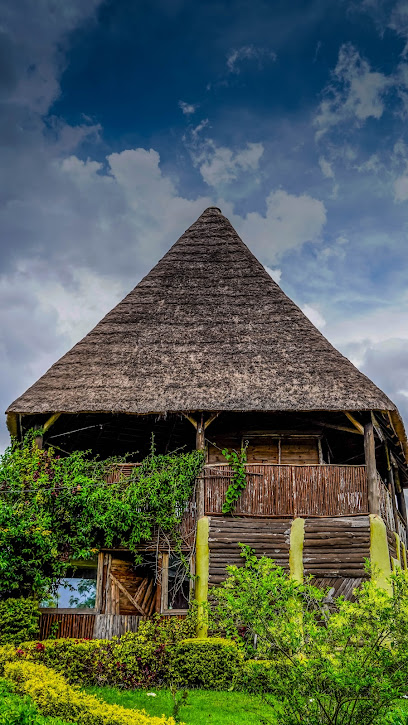
Active supermarket(1stbranch)
Discover Kabale's vibrant shopping scene at Active Supermarket, where local goods and essentials await every traveler.
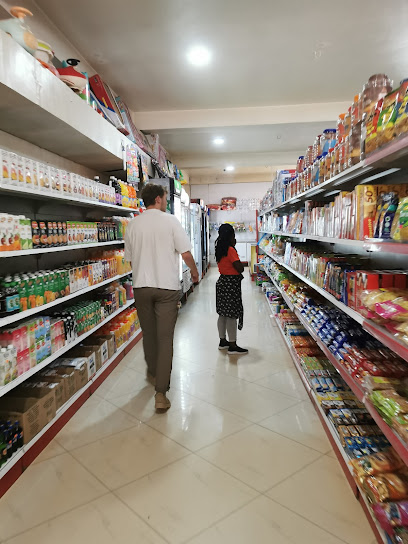
Lake Bunyonyi Eco Resort
Experience tranquility and eco-friendly luxury at Lake Bunyonyi Eco Resort, a serene getaway surrounded by nature's beauty.
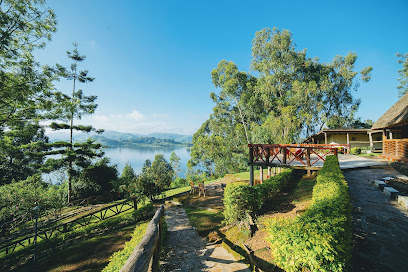
Hawk's Eye Lodge Bunyonyi
Discover tranquility at Hawk's Eye Lodge Bunyonyi, a lakeside escape offering stunning views, local cuisine, and an array of outdoor adventures.
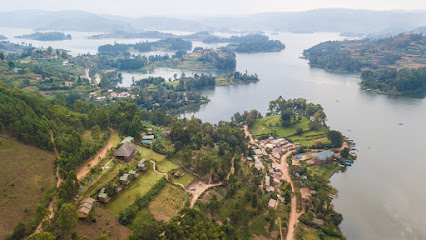
Supreme Adventure Park Bunyonyi
Experience the thrill of adventure sports at Supreme Adventure Park Bunyonyi, a breathtaking destination nestled by Lake Bunyonyi in Uganda.
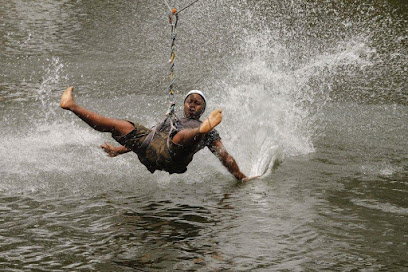
Edirisa on Lake Bunyonyi
Experience the tranquility and adventure of Edirisa on Lake Bunyonyi, a perfect retreat for nature lovers and cultural explorers in Uganda.

Itambira Island, Seeds of Hope
Experience the tranquil beauty of Itambira Island on Bunyonyi Lake, a perfect retreat for relaxation, adventure, and cultural immersion.
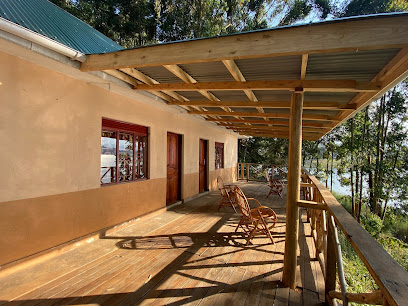
Kabale kneat wear shop
Explore Kabale Kneat Wear Shop for unique Ugandan fashion and local craftsmanship, perfect for souvenirs and personal style.
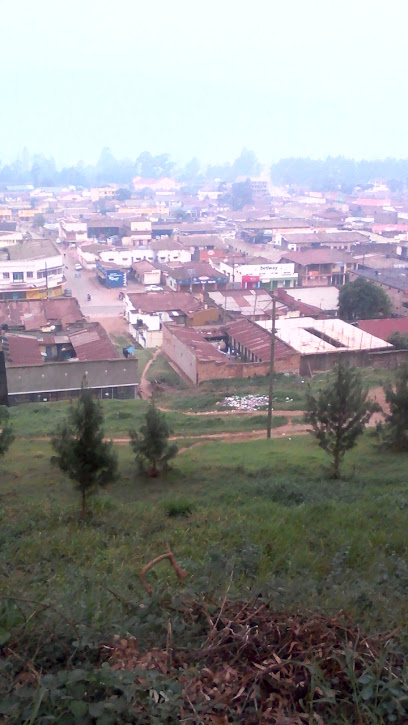
Kikoregi Shopping Center
Explore Kikoregi Shopping Center in Kabale: a delightful shopping destination featuring local crafts, eateries, and a vibrant atmosphere for all visitors.
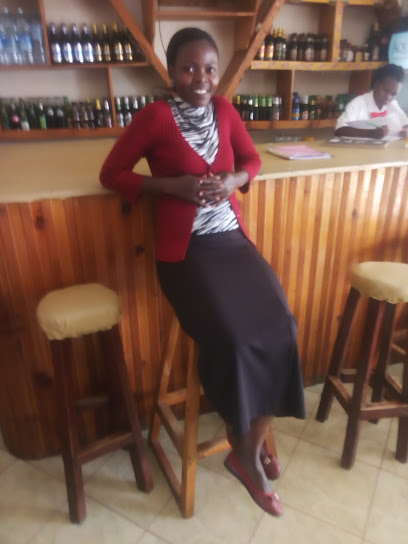
MS² FABRICS
Explore the vibrant world of Ugandan fashion at MS² Fabrics, a clothing store in Kabale offering unique textiles and contemporary styles.
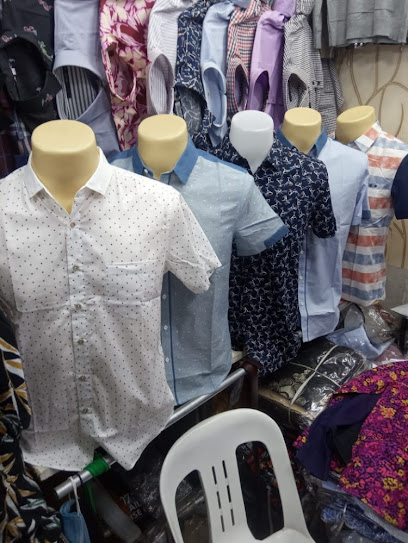
Happy Girls Project
Explore the Happy Girls Project, a craft store empowering local artisans with unique handmade bags and souvenirs in the heart of Lake Bunyonyi.
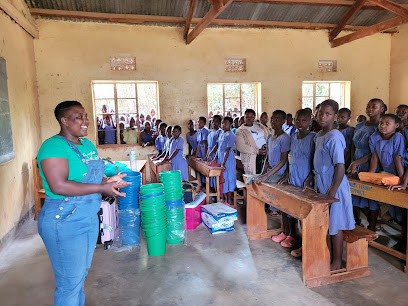
Judith Boutique
Shop at Judith Boutique in Kabale for unique clothing and accessories that celebrate local culture and style.
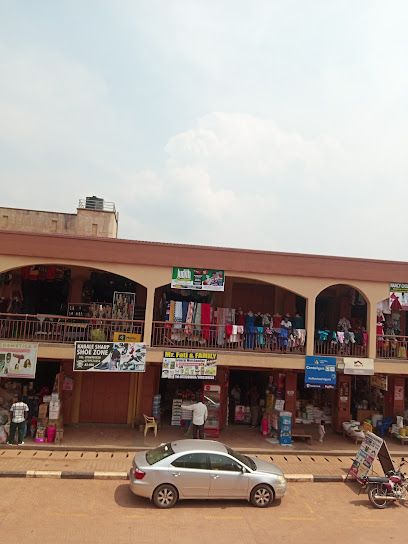
M.K Shopping Centre
Discover the vibrant shopping experience at M.K Shopping Centre in Kabale, offering a delightful blend of local crafts and international brands.
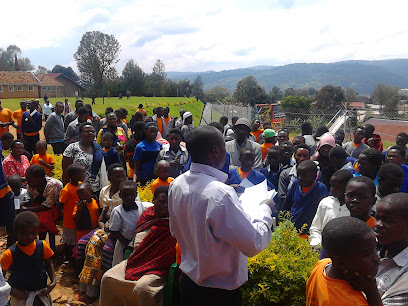
Western Designs Kabale
Explore the vibrant craftsmanship at Western Designs Kabale, a premier craft store showcasing unique handmade items that reflect Uganda's rich cultural heritage.
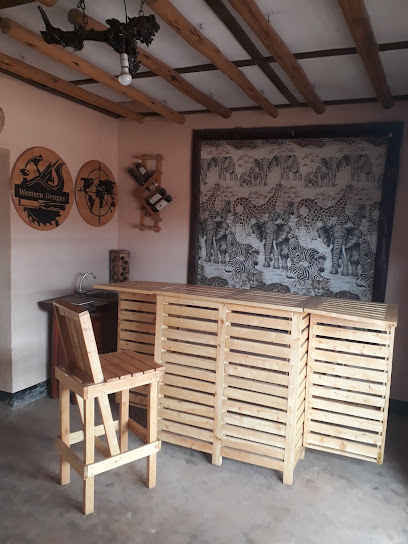
Essential bars & hidden hideouts
Hawk's Eye Lodge Bunyonyi
Experience breathtaking views and serene relaxation at Hawk's Eye Lodge Bunyonyi, your ideal getaway on the shores of Lake Bunyonyi.
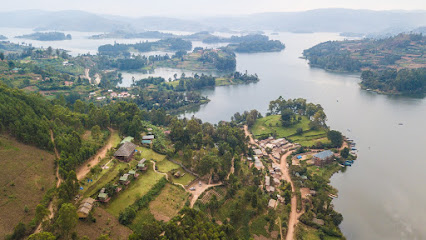
Rendezvous Valley Pub
Experience the vibrant atmosphere and local flavors at Rendezvous Valley Pub in Kabale, a perfect spot for relaxation and socializing.
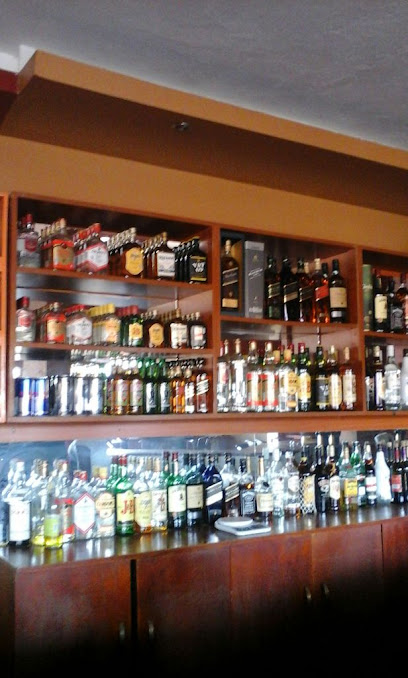
Itambira Island, Seeds of Hope
Discover the serene beauty and vibrant culture of Itambira Island, a hidden gem on Bunyonyi Lake that offers relaxation, adventure, and unforgettable experiences.
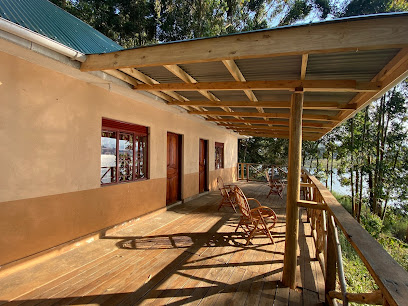
99 Bottles and Grill
Experience the vibrant nightlife at 99 Bottles and Grill in Kabale, where drinks, food, and atmosphere come together for an unforgettable evening.
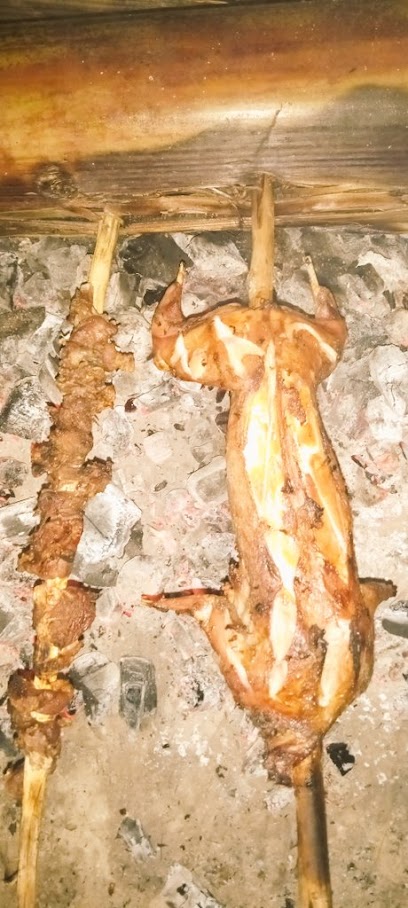
Chillspot Bar & Grill Bunyonyi
Discover Chillspot Bar & Grill Bunyonyi, where delicious food meets breathtaking views by Lake Bunyonyi in Uganda.
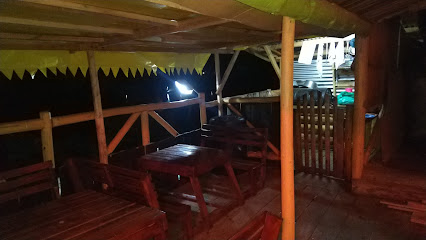
Rwenzori Bar & Lodges
Discover the lively atmosphere and local flavors at Rwenzori Bar & Lodges in Kabale, Uganda - a perfect retreat for tourists and locals alike.
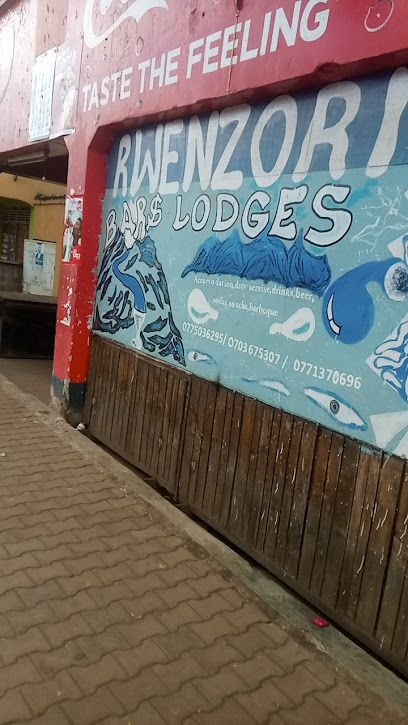
Korinako Bar
Experience the vibrant nightlife of Kabale at Korinako Bar, where local culture meets a lively ambiance and refreshing drinks.

BSR Garden Bar & Grill
Experience the exquisite flavors and stunning views at BSR Garden Bar & Grill, a top dining destination on the shores of Lake Bunyonyi.
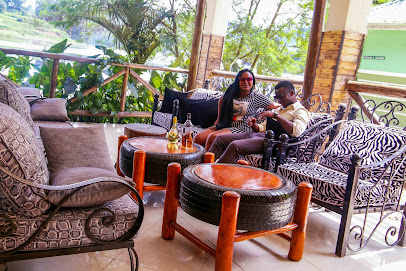
Pearl of africa resort
Experience the beauty of Lake Bunyonyi at the Pearl of Africa Resort, where nature meets relaxation in a serene setting.
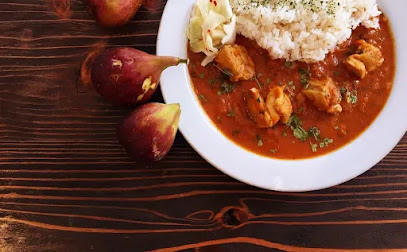
Bigdaddy's Bar & Grill Kabale
Discover the heart of Kabale at Bigdaddy's Bar & Grill, where local flavors and vibrant atmosphere meet for an unforgettable experience.

Elitech Bar and pork joint
Discover the authentic taste of Uganda at Elitech Bar and Pork Joint, where vibrant atmosphere meets delicious local cuisine.

Afrique bar and lodge
Discover the vibrant nightlife of Kabale at Afrique Bar and Lodge, where local culture meets a lively ambiance for an unforgettable experience.
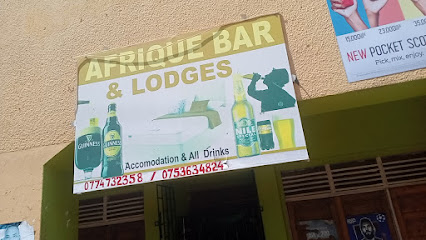
Mungwe Spot Bar & Restaurant
Experience the vibrant local culture and delightful cuisine at Mungwe Spot Bar & Restaurant, a must-visit destination in Kabale, Uganda.

Shakira bar &Restaurant
Discover the vibrant Shakira Bar & Restaurant, a lakeside gem offering local cuisine, refreshing drinks, and stunning views in the heart of Lake Bunyonyi.

Local Phrases about Lake Bunyonyi
-
- HelloMuraho
[moo-rah-ho] - GoodbyeMurabeho
[moo-rah-beh-ho] - YesEego
[ee-go] - NoNahi
[nah-hee] - Please/You're welcomeKubakira
[koo-bah-kee-rah] - Thank youWebale
[weh-bah-leh] - Excuse me/SorryKubakira
[koo-bah-kee-rah] - How are you?Oli otya?
[oh-lee oh-cha] - Fine. And you?Gyendi. Oweyi?
[gyen-dee. oh-way-yee] - Do you speak English?Ogamba olungereza?
[oh-gahm-bah oh-lun-geh-reh-zah] - I don't understandSijja kwegomba
[see-jah kweh-gom-bah]
- HelloMuraho
-
- I'd like to see the menu, pleaseNkikola kumanya eminu, mukama
[en-key-coh-lah koo-mun-ya eh-mee-noo, moo-kah-mah] - I don't eat meatSiina okulya enyama
[see-nah oh-kool-yah en-yah-mah] - Cheers!Mwesibye!
[mweh-see-bee-yeh] - I would like to pay, pleaseNkikola okutambula, mukama
[en-key-coh-lah oh-koo-tahm-boo-lah, moo-kah-mah]
- I'd like to see the menu, pleaseNkikola kumanya eminu, mukama
-
- Help!Mbulire!
[mboo-lee-reh] - Go away!Tewali ntya!
[teh-wah-lee n-chah] - Call the Police!Kubanga poliisi!
[koo-bahn-gah poh-lee-ee-see] - Call a doctor!Kubanga daktari!
[koo-bahn-gah dahk-tah-ree] - I'm lostNziryo
[nzee-ree-yoh] - I'm illNjagala okugwa
[en-jah-gah-lah oh-koo-gwah]
- Help!Mbulire!
-
- I'd like to buy...Nkikola okwetegereza...
[en-key-coh-lah oh-kweh-teh-geh-reh-zah] - I'm just lookingNjagala nkola
[en-jah-gah-lah en-koh-lah] - How much is it?Birungi kuki?
[bee-roon-gee koo-kee] - That's too expensiveEno gya mabi
[eh-noh jah mah-bee] - Can you lower the price?Ogamba okumanya omusolo?
[oh-gahm-bah oh-koo-mun-ya oh-moo-soh-loh]
- I'd like to buy...Nkikola okwetegereza...
-
- What time is it?Saa ngapi?
[sah ngah-pee] - It's one o'clockSaa mokka
[sah moh-kah] - Half past (10)Saa mu kumi n'omunaana
[sah moo koo-mee n-oh-moo-nah-nah] - MorningEmirembe
[eh-mee-rehm-beh] - AfternoonEkiro
[eh-kee-roh] - EveningEkyambe
[eh-kyahm-beh] - YesterdayEino
[eh-no] - TodayLero
[leh-roh] - TomorrowEmyaka
[ehm-yah-kah] - 1Omuzira
[oh-moo-zee-rah] - 2Biri
[bee-ree] - 3Sina
[see-nah] - 4Nnya
[nn-yah] - 5Tano
[tah-noh] - 6Mukaaga
[moo-kah-gah] - 7Musanvu
[moo-sahn-voo] - 8Munaana
[moo-nah-nah] - 9Mwenda
[mwehn-dah] - 10Kumi
[koo-mee]
- What time is it?Saa ngapi?
-
- Where's a/the...?Wali atya...?
[wah-lee ah-chah] - What's the address?Ituuka ya kibiina?
[ee-too-kah yah kee-bee-nah] - Can you show me (on the map)?Ogamba okunyumiriza (ku mapu)?
[oh-gahm-bah oh-koo-nyoo-mee-ree-zah koo mah-poo] - When's the next (bus)?Ogamba olina omubanja omu kya?
[oh-gahm-bah oh-lee-nah oh-moo-bahn-jah oh-moo chah] - A ticket (to ....)Olina tikiti (ku ....)
[oh-lee-nah tee-kee-tee koo]
- Where's a/the...?Wali atya...?
History of Lake Bunyonyi
-
Lake Bunyonyi, often referred to as the 'Place of Many Little Birds,' is a naturally occurring lake formed approximately 8,000 years ago. It is a result of lava flow blocking off a river, creating a body of water surrounded by steep terraced hills. The lake is one of Africa's few lakes free of bilharzia, making it safe for swimming.
-
Before the arrival of colonial powers, the area around Lake Bunyonyi was inhabited by the Batwa, also known as pygmies, and the Bakiga people. The Batwa are believed to be the original inhabitants of the region, living as hunter-gatherers in the dense forests. The Bakiga, primarily agriculturalists, later settled in the area, creating a rich tapestry of cultural interactions.
-
During the British colonial period in the early 20th century, the area around Lake Bunyonyi was heavily influenced by European settlement and missionary activities. The British introduced modern agricultural practices and Christianity, which significantly altered the traditional ways of life of the indigenous people. The colonial administration also established infrastructure that connected the lake region to other parts of Uganda.
-
Uganda gained independence from British rule in 1962. In the years that followed, the Lake Bunyonyi area saw various developmental projects aimed at improving local livelihoods. These included the promotion of tourism, which highlighted the lake's natural beauty and cultural heritage. The region also witnessed efforts to foster education and healthcare among the local communities.
-
Lake Bunyonyi is dotted with 29 islands, each with its own historical and cultural significance. One of the most famous is Akampene Island, also known as Punishment Island. Historically, unmarried pregnant women were abandoned on this small island as a form of punishment. This practice has since been abolished, but the island remains a poignant reminder of past cultural practices.
-
Today, the communities around Lake Bunyonyi continue to celebrate their rich cultural heritage through various traditional practices and festivals. The Bakiga people are known for their vibrant dances, storytelling, and crafts. The lake itself is a focal point for local life, with activities such as canoeing, fishing, and farming being integral to the community's daily routine.
Lake Bunyonyi Essentials
-
Lake Bunyonyi is located in southwestern Uganda, near the town of Kabale. The nearest international airport is Entebbe International Airport, approximately 420 kilometers away. From Entebbe, you can take a domestic flight to Kihihi Airstrip, which is about 90 kilometers from the lake. Alternatively, you can travel by road from Entebbe or Kampala (the capital city) to Kabale, which takes around 6-8 hours. From Kabale, Lake Bunyonyi is a short 30-minute drive.
-
Once you arrive at Lake Bunyonyi, you can use local taxis or boda-bodas (motorcycle taxis) for short distances. For exploring the lake itself, traditional dugout canoes and motorboats are available for hire. These are the primary modes of transportation for getting to the various islands on the lake. Renting a car is also an option for more extensive exploration of the surrounding areas.
-
The official currency in Uganda is the Ugandan Shilling (UGX). Credit cards are accepted in some hotels and restaurants around Lake Bunyonyi, but it is advisable to carry cash, especially for smaller establishments and local vendors. ATMs are available in Kabale town, so it is recommended to withdraw sufficient cash before heading to the lake area.
-
Lake Bunyonyi is generally a safe destination for tourists. However, standard travel precautions should be taken. Avoid walking alone at night and keep your belongings secure. While there are no specific high-crime areas targeting tourists, it is always best to stay vigilant and aware of your surroundings. Petty theft can occur, so keep an eye on your valuables.
-
In case of emergency, dial 999 for immediate assistance. The nearest medical facilities are located in Kabale town. It is advisable to have travel insurance that covers medical emergencies. For minor health issues, there are pharmacies in Kabale where you can purchase over-the-counter medications. Always have a list of emergency contacts and the address of your accommodation.
-
Fashion: Do dress modestly, especially when visiting villages or interacting with locals. Avoid wearing revealing clothing. Religion: Do respect local customs and traditions. Public Transport: Do be respectful and follow local etiquette. Always negotiate the fare before boarding a boda-boda. Greetings: Do greet people with a handshake. It is polite to ask about someone's well-being before diving into other topics. Eating & Drinking: Do try local dishes and accept food offerings graciously. Don't refuse hospitality, as it is considered impolite.
-
To experience Lake Bunyonyi like a local, visit the weekly markets in nearby villages where you can buy fresh produce and handmade crafts. Engage with the friendly locals, who are often willing to share stories about their culture and traditions. Don't miss the opportunity to take a traditional dugout canoe ride to explore the lake's 29 islands. For a unique experience, consider staying in one of the eco-lodges on the islands to immerse yourself in the natural beauty of the area.
Trending Landmarks in Lake Bunyonyi
-
Birdnest @ Bunyonyi Resort
-
Arcadia Lodges Lake Bunyonyi
-
Bunyonyi Overland Resort
-
Bunyonyi Safaris Resort
-
Lake Bunyonyi Rock Resort
-
Lake Bunyonyi Eco Resort
-
Hawk's Eye Lodge Bunyonyi
-
All Saints' Church-Kabale
-
Crater Bay Cottages and Camp
-
Edirisa on Lake Bunyonyi
-
Amasiko Homestay
-
The Kansiime Backpackers
-
Entusi Resort & Retreat Center
-
Itambira Island, Seeds of Hope
-
Keije Resort Bunyonyi | Comfort Resort in Lake Bunyonyi | Lake Bunyonyi Accommodation
Nearby Cities to Lake Bunyonyi
-
Things To Do in Nyagatare
-
Things To Do in Kigali
-
Things To Do in Rubavu
-
Things To Do in Gisenyi
-
Things To Do in Muhanga
-
Things To Do in Nyamata
-
Things To Do in Kibuye
-
Things To Do in Karongi
-
Things To Do in Mbarara
-
Things To Do in Kirundo
-
Things To Do in Butare
-
Things To Do in Muyinga
-
Things To Do in Ngozi
-
Things To Do in Kayanza
-
Things To Do in Cibitoke









